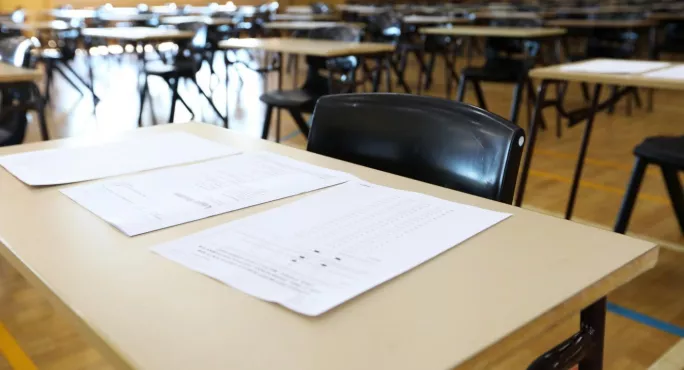Schools have been told to ensure that they share information with students about how teacher-assessed GCSE and A-level grades were reached in order to reduce the chance of them being appealed.
New guidance from the exam boards’ Joint Council for Qualifications on this summer’s appeals process says schools should share the sources of evidence they have used to determine grades and - “where appropriate” - “any grades/marks associated with them”.
The JCQ guidance adds: “This transparency will allow students to identify any errors or highlight circumstances relating to pieces of evidence and should reduce the number of instances where students request a centre review or awarding organisation appeal once results have been issued.”
GCSEs and A levels: Schools have ‘no discretion’ on who appeals
2021 grades: Teachers relieved of appeals burden
Qualifications: ‘Excessive grade inflation’ warning
The JCQ also calls on schools to share their policy for arriving at grades, details of any variations in evidence used based on disruption to what a student was taught and details of any special circumstances that have been considered in determining their grade.
GCSEs and A levels 2021: Schools sharing information ‘will reduce appeals’
The new JCQ guidance recommends that centres share this information with students before results day.
It adds: “However, if a centre has not been able to share this information before results day, it must be prepared to do so on or after results day if a student requests it.
“Centres may find it useful to refer to the Information Commissioner’s Office (ICO) guidance on students’ access to information about their exam results, exam scripts and exam mark exemptions.”
However, the guidance also stresses that “students must not be told the final teacher-assessed grade that has been submitted to the [exam board]” before results day.
“Provision of the teacher-assessed grade to any student, or other party, before the agreed date for release of results, will be viewed as malpractice and appropriate action will be taken by the relevant awarding organisation,” it warns schools.
School leaders have warned about the extra appeals burden being placed on schools that have already had the responsibility of assessing and submitting grades following the cancellation of exams this summer because of the Covid crisis.
Geoff Barton, general secretary of the Association of School and College Leaders said: “While some of the appeals process is being picked up by the exam boards, there is still a lot that is being landed on schools and colleges.
“The process entails them having in place systems, resources and staffing from results days onwards in August for priority appeals from students in danger of missing out on university places.
“Then in September, when schools and colleges are managing the start of the new school year, they will also have to deal with all other appeals. As appeals are free and available on demand, there is a risk that schools and colleges may face very significant extra workload at a time when they are already at full stretch.
“The DfE has recognised the implications in August and has told us that funding will be made available for schools and colleges to bring in staff during the summer holiday period, and we appreciate that gesture
“However, we remain very concerned about the overall situation and the fact that schools and colleges are once again left having to pick up the pieces in a grading system that has been hastily constructed because the government didn’t have a contingency plan in place in the event of public exams being cancelled.”




